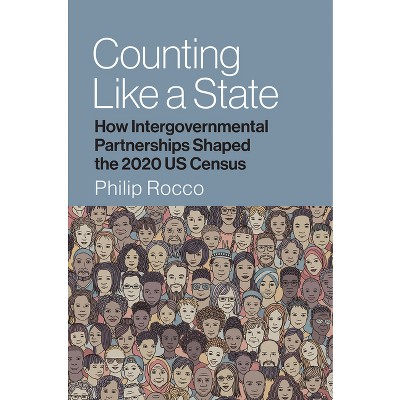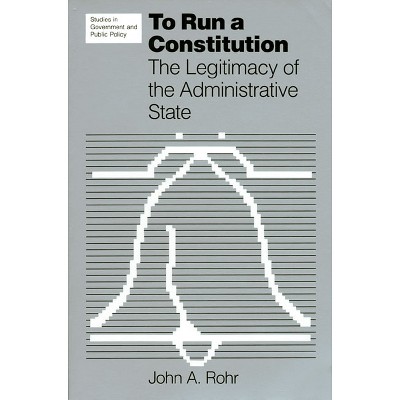Sponsored

Social Security - (Studies in Government and Public Policy) by Daniel Beland (Paperback)
In Stock
Sponsored
About this item
Highlights
- Everyone agrees that Social Security's future is in jeopardy--or is it?
- Author(s): Daniel Beland
- 264 Pages
- Political Science, Public Policy
- Series Name: Studies in Government and Public Policy
Description
About the Book
Compact, timely, well-researched, and balanced, this institutional history of Social Security's seventy years shows how the past still influences ongoing reform debates, helping the reader both to understand and evaluate the current partisan arguments on both sides.Book Synopsis
Everyone agrees that Social Security's future is in jeopardy--or is it? Long viewed as the "third rail" of American politics, Social Security is a major political issue, and many experts and politicians would like to restructure this program. But too few of us, young and elderly alike, really understand the origins and workings of this popular program. Daniel Béland answers the call for objective information with a short history that provides context and clarity for the current debates. Covering six decades through the beginning of the current century, Béland chronicles how Social Security and the controversy surrounding its solvency have evolved, offering along the way new insights into its past, present, and future. His balanced perspective will help readers understand and evaluate partisan arguments on both sides of the issue. Béland reconstructs the political history of Social Security, describes the impact of subsequent amendments to the original act, and offers comparative insights from other countries that can improve our understanding of the debate. He focuses particularly on the relationship between ideas and institutions in policymaking to examine the impact of gender and race on Social Security politics; and he shows that gender has had a more direct impact on Social Security development--especially regarding spousal benefits--and is more important in understanding the politics of reform than has often been understood. In assessing how Social Security has been sold to the public, Béland reveals how the 1935 act resulted in part from its link with the traditional American belief in the values associated with hard work and self-reliance, while surreptitiously providing some economic security for the impoverished. Today's privatizers argue for changing from a guaranteed benefit to a defined contribution program, seeking to reclaim from liberals the rhetoric about American values in order to alter the very nature of Social Security--effectually turning discourse centered on personal and collective gain against the institutional legacy of the New Deal. Succinct and illuminating, Béland's work provides concerned citizens with a thoughtful exploration of how the politics of Social Security evolved, while offering scholars new theoretical insights about the welfare state and the role of ideas and institutions in policymaking.Review Quotes
"This solid history and analysis should receive attention beyond those interested in the United States and pensions."--Political Studies Review
"Reconstructs in rich detail the political history of the U.S. Social Security program from the program's origins through the current political debate over personal Social Security accounts. . . . The author's historical institutionalism perspective complements and enriches conventional economic approaches, and he therefore promotes a deeper understanding of the historical nuances of US tax and transfer policy."--Journal of Pension Economics and Finance
"A readable account . . . . The real merit of this book is that it asks questions for which Béland has put together a considerable amount of relevant evidence. . . . This book provides a good account of what the retirement program's politics have been about; it is worth adding to one's library."--Social Service Review
"A useful summary of the history of Social Security, informed by a flexible theoretical framework, one that is likely to help draw new participants into a discussion of this vital program and its cloudy future."--American Historical Review
"A theoretically informed, historically accurate, and valuable guide to Social Security's development. . . . Serves as an ideal vantage point from which to view today's debate."--Edward D. Berkowitz, author of Mr. Social Security: The Life of Wilbur J. Cohen
"There are few social scientists with sufficient expertise to understand the debates over Social Security reform and even fewer who can make them comprehensible to non-experts. Béland's beautifully written and carefully researched book places these debates in their historical context and explains them in a thoughtful and balanced manner."--Jill Quadagno, author of The Transformation of Old Age Security
"Because Béland's powerful analysis significantly advances current debates about the role of ideas, political institutions, gender, and race in the formation of Social Security, it is must reading for scholars in the field. But since it is uncommonly well written, it will also serve as an important guide for the uninitiated trying to make sense of contemporary debates."--John Myles, author of Old Age in the Welfare State
"Provides valuable insights about Social Security politics over time, including convincing evidence about the enduring emphasis on self-reliance and individualism, the diminishing role of business and labor, and the relative impact of gender and race."--Pamela J. Larson, Executive Vice President, National Academy of Social Insurance
"In the debate over Social Security, ideology often postures as fact while partisan rhetoric displaces analysis. A subject so crucial to the future of the nation and every one of its citizens demands better treatment. Béland provides it in this remarkably clear, concise, and reliable history."--Michael B. Katz in the Journal of Interdisciplinary History
"A readable account . . . . The real merit of this book is that it asks questions for which Béland has put together a considerable amount of relevant evidence. . . . Worth adding to one's library."--Theodore R. Marmor in the Social Service Review
Shipping details
Return details
Trending Non-Fiction











